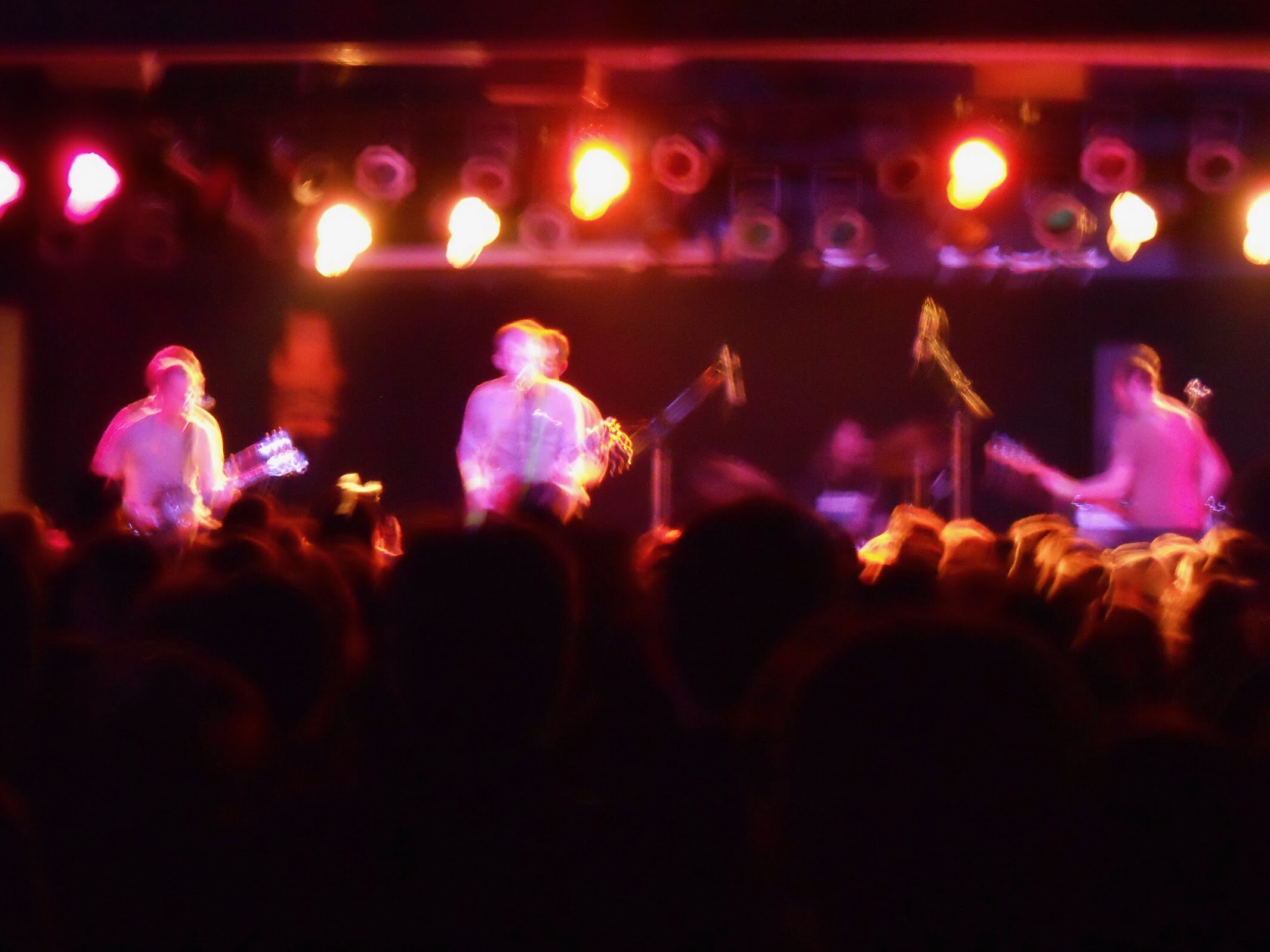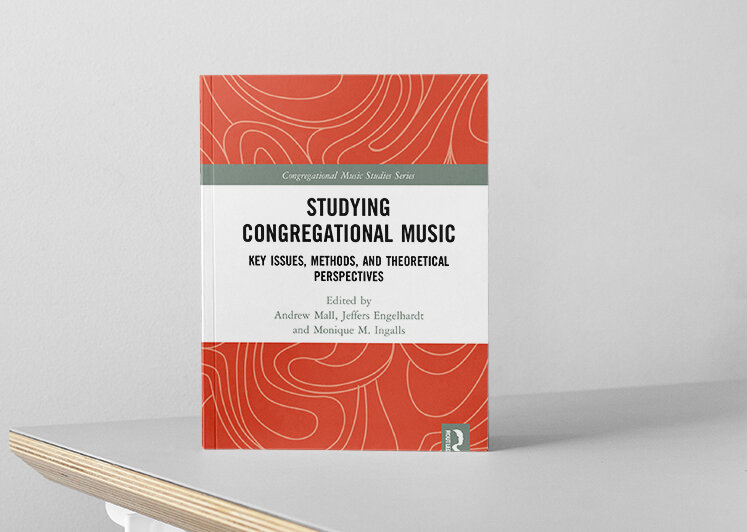

God RocK, Inc.:
The Business of Niche Music
Popular music in the twenty-first century is increasingly divided into niche markets. How do fans, musicians, and music industry executives define their markets’ boundaries? What happens when musicians cross those boundaries? What can Christian music teach us about commercial popular music? In God Rock, Inc., Andrew Mall considers the aesthetic, commercial, ethical, and social boundaries of Christian popular music, from the late 1960s, when it emerged, through the 2010s.
University of California Press (2021)
Table of Contents:
Introduction: Popular Music, Markets, Margins, and the Curious Case of Christian Music [Spotify playlist]
Part One: Christian Music: An Industry and Its History
Chapter 1: “Why Should the Devil Have All the Good Music?” The Christian Markets Origins [Spotify playlist]
Chapter 2: The Great Adventure: Commercial Success in the Christian Record Industry and the Price of Profit [Spotify playlist]
Chapter 3: A Wolf in Sheep’s Clothing? Christian Ethics Encounter Rock [Spotify playlist]
Chapter 4: “Find a Way”: Amy Grant and the Christian Market’s Mainstream [Spotify playlist]
Part Two: Niche Music Markets: Ethics, Profits, and Risk
Chapter 5: Music to Raise the Dead: Christian Music and the Ethics of Style [Spotify playlist]
Chapter 6: Lost in the Sound of Separation: Resistance at Christian Music Festivals [Spotify playlist]
Chapter 7: From Margins to Mainstreams and Back: Crossover Cases and Their Markets [Spotify playlist]
Conclusion: The Stability of Risk and the Risk of Stability [Spotify playlist]
God Rock, Inc. Extras
Leah Payne reviewed God Rock, Inc. for the Journal of Religion, Media and Digital Culture.
Rock That Doesn’t Roll podcast (2023). Who could a 1990s Christian rock aficionado turn to in order to find the latest and greatest releases? For mainstream music fans, tastemakers included record store clerks of 1990s indie music stores, or retail juggernauts like Tower Records and Wherehouse - the kind of superfans depicted by Jack Black in High Fidelity. But for many evangelical teens of the 1990s, record stores were not the place to find kid-tested, parent-approved music. For that, Christian teens usually had to go to Christian bookstores.
AAR (2023) “author meets critics” panel on God Rock, Inc. Panelists will consider how Christian music as a niche business shapes religious communities in the United States (and beyond), as well as how its many genres and subgenres - pop, rock, metal, rap, hip hop, praise and worship, etc. - reflect and shape evangelical Christian politics, practice, and theology.
Christianity Today (2023). Author Kelsey Kramer McGinnis quotes from God Rock, Inc. in her article on the the corporate consolidation of worship music.
Jason Lee Guthrie reviewed God Rock, Inc. for the Journal of the Music and Entertainment Industry Educators Association (MEIEA).
Christianity Today (2022). Author Kelsey Kramer McGinnis quotes from God Rock, Inc. in her article on the Gospel Music Association’s Dove Awards (the Christian music industry’s answer to the Grammy Awards).
Christianity Today (2022). Author Rachel Seo quotes from God Rock, Inc. in her article on TikTok and Christian recording artist Montell Fish.

Studying Congregational Music:
Key issues, methods, and theoretical perspectives
Studying the role of music within religious congregations has become an increasingly complex exercise. The significant variations in musical style and content between different congregations require an interdisciplinary methodology that enables an accurate analysis, while also allowing for nuance in interpretation. This book is the first to help scholars think through the complexities of interdisciplinary research on congregational music-making by critically examining the theories and methods used by leading scholars in the field.
Co-edited with Monique M. Ingalls and Jeffers Engelhardt.
Routledge (2021)
FOR A LIMITED TIME: save 20% when you purchase the book directly from the publisher using the discount code “FLY21”
Table of Contents:
Part I: Methodological Perspectives
Chapter 2: Worshipping “With Everything”: Musical Analysis and Congregational Worship (Joshua Kalin Busman) [Spotify playlist]
Chapter 4: Ethnography in the Study of Congregational Music (Jeff Todd Titon)
Chapter 5: Re-sounding the History of Christian Congregational Music (Sarah Eyerly)
Part II: Key Issues
Chapter 7: Political Economy and Capital in Congregational Music Studies: Commodities, Worshipers, and Worship (Andrew Mall) [Spotify playlist]
Studying Congregational Music Chapter Previews
Studying Congregational Music, Routledge (2021). Chapter 14, “Ecclesioscapes: interpreting Gatherings around Christian Music in and outside the Church through the Dutch Case of the ‘Sing Along Matthäuspassion,’ ” by Mirella Klomp.
Studying Congregational Music, Routledge (2021). Chapter 13, “Searching for a Metaphor: What Is the role of the Shaliach/Shalichat Tzibur (Leader of Prayer)?” by Jeffrey A. Summit.
Studying Congregational Music, Routledge (2021). Chapter 11, “Congregational Singing and Practices of Gender in Christian Worship: Exploring Intersections,” by Teresa Berger.
Studying Congregational Music, Routledge (2021). Chapter 11, “Studying Byzantine Ukrainian Congregational Music in Canada: Considering Community and Diaspora,” by Marcia Ostashewski.
Studying Congregational Music, Routledge (2021). Chapter 10, “Researching Black Congregational Music from a Migratory Point of View: Methods, Challenges, and Strategies,” by Melvin L. Butler.
Studying Congregational Music, Routledge (2021). Chapter 9, “ ‘We Just Don’t Have It’: Addressing Whiteness in Congregational Voicing,” by Marissa Glynias Moore.
Studying Congregational Music, Routledge (2021). Chapter 8, “Congregation and Chorality: Fluidity and Distinction in the Voicing of Religious Community,” by Jeffers Engelhardt.
Studying Congregational Music, Routledge (2021). Chapter 7, “Political Economy and Capital in Congregational Music Studies: Commodities, Worshipers, and Worship,” by Andrew Mall.
Studying Congregational Music, Routledge (2021). Chapter 6, “Music Theology as the Mouthpiece of Science: Proving It through Congregational Music Studies,” by Bennett Zon.
Studying Congregational Music, Routledge (2021). Chapter 5, “Re-sounding the History of Christian Congregational Music,” by Sarah Eyerly.
Studying Congregational Music, Routledge (2021). Chapter 4, “Ethnography in the Study of Congregational Music,” by Jeff Todd Titon.
Studying Congregational Music, Routledge (2021). Chapter 3, “Mediating Religious Experience? Congregational Music and the Digital Music Interface,” by Anna E. Nekola.
Studying Congregational Music, Routledge (2021). Chapter 2, “Worshipping ‘With Everything’: Musical Analysis and Congregational Worship,” by Joshua Kalin Busman.
Studying Congregational Music, Routledge (2021). Chapter 1, “In Case You Don’t Have a Case: Reflections on Methods for Studying Congregational Song in Liturgical History,” by Lester Ruth.
Studying Congregational Music, Routledge (2021). Introduction, “Interdisciplinarity and Epistemic Diversity in Congregational Music Studies,” by Andrew Mall, Jeffers Engelhardt, and Monique M. Ingalls.
Looking for more information?
Punk Scholars Network conference presentation (2025). In this paper I reflect on the meaningfulness of the Furnace Fest community to individual participants. My findings are based on four sequential years of fieldwork at Furnace Fest (2021–24) with ever-growing research teams, hundreds of survey responses, and dozens of hours of semi-structured interviews with organizers, community members, and random attendees (around 50 conducted at the 2024 event alone). I argue that nostalgia at Furnace Fest is generative as much as it is reflective, affirming participants’ identities while also empowering them to take risks and be vulnerably transparent in relative safety.
The State of DIY: A Roundtable Discussion was a public event held August 4, 2024, at the Lilypad in Cambridge, Mass.
Northeastern Global News (2025). One of the biggest rappers of his generation, Kendrick Lamar is a logical choice for the NFL’s biggest stage. But the politically conscious rapper also stands in stark contrast to the league’s image.
In this capstone course for music industry students, we explore contemporary analyses and issues with an eye toward critically assessing and engaging the music industries. Each student brings to the classroom a unique set of skills and experiences, including those grounded in coursework and experiential learning (such as co-ops, internships, research, service learning, study abroad, and other activities). During seminar, we learn together as a class from these individualized experiences and sets of expertise—the sum of our knowledge, in essence, is greater than its individual parts.
Northeastern Global News (2024). Taylor Swift ended her nearly two-year-long tour on Dec. 8. The Eras Tour broke records as one of the highest-grossing tours in history.
Reporting by Agency France-Presse, published by ABS-CBN and other global media outlets (2024). The nearly two-year-long, $2-billion Eras Tour shattered records, made history and quite literally triggered earthquakes -- so what could Taylor Swift, the planet's biggest star, possibly do next?
CNBC (2024). “Dynamic pricing” made Oxford University Press’ shortlist for the word of the year in 2024. Although the practice has been around for years, a recent surge in demand for sought-after concert tickets, such as Taylor Swift’s Eras Tour, brought dynamic pricing back into the spotlight.
Northeastern Global News (2024). Northeastern music expert Andrew Mall sounds off on this year’s Grammy nominations, including Beyonce’s nominations for her first country album.
Journal of Religion, Media and Digital Culture (2024). In this review of Erika D. Gault's Networking the Black Church: Digital Black Christians and Hip Hop (NYU Press, 2022), I discuss Gault’s digital ethnographic approach to learning more about “digital Black Christians” (her chosen signifier for what others might call Black Millennials) and her findings about how those digital Black Christians — primarily “creatives” and “thought leaders” (or, to others, “influences”) — impact theological discourses and Christian communities outside of defined religious hierarchies and churches.